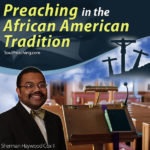As an Amazon Associate I earn from qualifying purchases.
 We as preachers are often tempted to preach a 30 minute sit-com message. In those messages the great mysterious and sometimes surprising God is reduced to a simple understandable and always known entity. Instead of the God who sometimes surprises us we end up with a God that always does what we expect. The parables which at one time was a reservoir of God’s surprising actions has become, in our preaching simple stories that promote the status quo.
We as preachers are often tempted to preach a 30 minute sit-com message. In those messages the great mysterious and sometimes surprising God is reduced to a simple understandable and always known entity. Instead of the God who sometimes surprises us we end up with a God that always does what we expect. The parables which at one time was a reservoir of God’s surprising actions has become, in our preaching simple stories that promote the status quo.
I mean look at the men who worked all day only to find that those who came late got paid the same amount. (Matthew 20:1-16) Certainly we would be upset by such an action if we were one of the all-day workers. Certainly this is not “fair” by any measure of fairness. We have removed our anger from reading the story. We have removed the feeling that the boss is enabling bad action in the story. We need to feel that anger at supposed unjust action that we feel is a necessary component to hear the story correctly. However, instead of feeling the anger, we simply attack “hypocrites” with the story and move on. We have smoothed out the difficulty of the story with a simple pointing at others which allows us to keep the story at arms length.
We don’t see that Jesus is talking about us in that story. Jesus is telling us that the way we think things should work is not the way that things work in the kingdom of God. Jesus is telling us that the Kingdom is so different it is almost shocking and unfair and crazy to those of us in this modern world.
Amazon and the Amazon logo are trademarks of Amazon.com, Inc, or its affiliates.









When learning to construct sermons we are urged to make them relevant to now. Many people are not aware of stiz em lebien and miss the message of then trying to make a message of now.
They loose the timelessness of scripture by making it “today”.
Just looking a a word like eidos, it changes the meaning of walking by faith and not by eidos.(sight) When we are not talking about seeing but what we see.